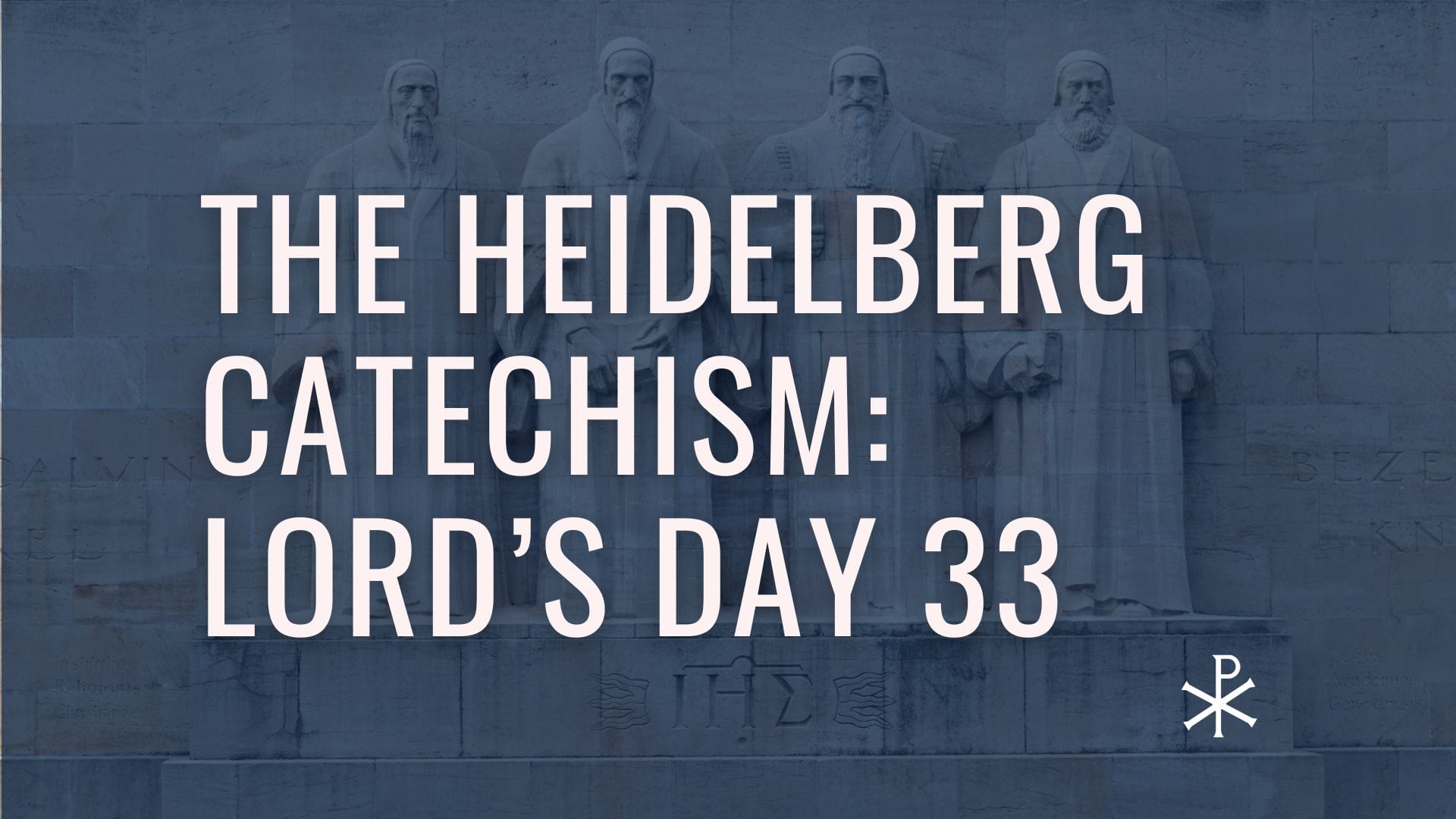Heidelberg Catechism: Lord’s Day 33
Lord’s Day 33 of the Heidelberg Catechism teaches that true repentance is the daily rhythm of dying to sin and rising to new life in Christ, confirmed in baptism, nourished at the Lord’s Table, and expressed through good works of faith.

Last week we saw that salvation by grace leads to gratitude, not indifference. Grace does not leave us as we are; it transforms us. Now the Catechism slows down to ask: what does that transformation look like? The answer is the daily rhythm of repentance, dying to the old and rising to the new.
Question 88
What is the true repentance or conversion of man?
It is the dying of the old nature and the coming to life of the new.¹
¹ Romans 6:1–11; Ephesians 4:22–24; Colossians 3:5–10
Question 89
What is the dying of the old nature?
It is to grieve with heartfelt sorrow that we have offended God by our sin, and more and more to hate it and flee from it.²
² Joel 2:12–13; Psalm 51:3–4, 17; Romans 8:12–13
Question 90
What is the coming to life of the new nature?
It is a heartfelt joy in God through Christ, and a love and delight to live according to the will of God in all good works.³
³ Romans 5:1; Psalm 103:1–5; Romans 6:10–11; Galatians 2:20
Question 91
But what are good works?
Only those which are done out of true faith, conform to God’s law, and are done for His glory; and not those based on our own opinion or human tradition.⁴
⁴ John 15:5; Romans 14:23; 1 Samuel 15:22
A Life of Turning
Repentance is not a one-time act left in the past; it is the ongoing rhythm of Christian life. Each day we die to the old and rise to the new. Paul describes baptism in precisely these terms: “We were buried therefore with Him by baptism into death, in order that… we too might walk in newness of life” (Romans 6:4). Baptism is not merely our beginning; it sets the pattern for every day that follows.
Cleansed, Clothed, and Welcomed
This dying and rising is not abstract. God gives us visible signs of it. In baptism we are washed clean and clothed with Christ (Galatians 3:27), marked as those who belong to Him. At the Lord’s Table we are continually nourished in that new life, united to Christ and to one another in His body (1 Corinthians 10:16–17). Together, these ordinances declare that we are cleansed, clothed, and welcomed. Baptism marks our entrance into Christ’s family; the Table strengthens us for the journey. Repentance is simply learning to live out what these signs proclaim.
Sorrow and Joy Together
Repentance has two movements: sorrow and joy. We grieve our sin, not merely because of guilty feelings, but because it offends the God who has loved us. Sorrow reflects our hatred of sin, but joy marks our new life in Christ. Christ’s resurrection joy takes root in us so that repentance becomes not a burden, but a delight. We turn from sin because we have found something better, life with God through Christ.
Defining Good Works
The Catechism is careful to define good works. They are not what culture applauds, nor what human tradition invents, nor even what our conscience alone feels is right. True good works are born of faith, shaped by God’s Word, and directed to His glory. This protects us both from pride (imagining anything we do is “good”) and from despair (believing nothing we do matters). Jesus’ words are plain: “Apart from Me you can do nothing” (John 15:5).
Repentance as Renewal
Repentance is not about wallowing in shame but about daily renewal—being restored again and again into Christ’s likeness. Baptism gives us a lens to see it: the old self drowned, the new self raised. The Table reminds us that we are guests of grace, fed for the journey. Repentance is a daily return to these realities until the day when the old is gone forever and the new is all that remains.
A Closing Prayer
Lord Jesus,
You died and rose again, and by Your Spirit You unite us to Yourself. Teach us the daily rhythm of dying and rising: sorrow for sin, joy in grace, hatred of evil, and delight in Your will. Let our good works flow from true faith, shaped by Your Word and directed to Your glory. Renew us until the day we share fully in Your resurrection life.
Amen.
Daily Bible Readings
New Testament in a Year
August 17 – Luke 16:19–31
August 18 – Luke 17:1–19
August 19 – Luke 17:20–37
August 20 – Luke 18:1–17
August 21 – Luke 18:18–43
August 22 – Luke 19:1–27
August 23 – Luke 19:28–48
The Bible in a Year
August 17 – Psalms 107–108; Luke 16:19–31
August 18 – Psalms 109–111; Luke 17:1–19
August 19 – Psalms 112–115; Luke 17:20–37
August 20 – Psalms 116–118; Luke 18:1–17
August 21 – Psalms 119:1–48; Luke 18:18–43
August 22 – Psalms 119:49–104; Luke 19:1–27
August 23 – Psalms 119:105–176; Luke 19:28–48
